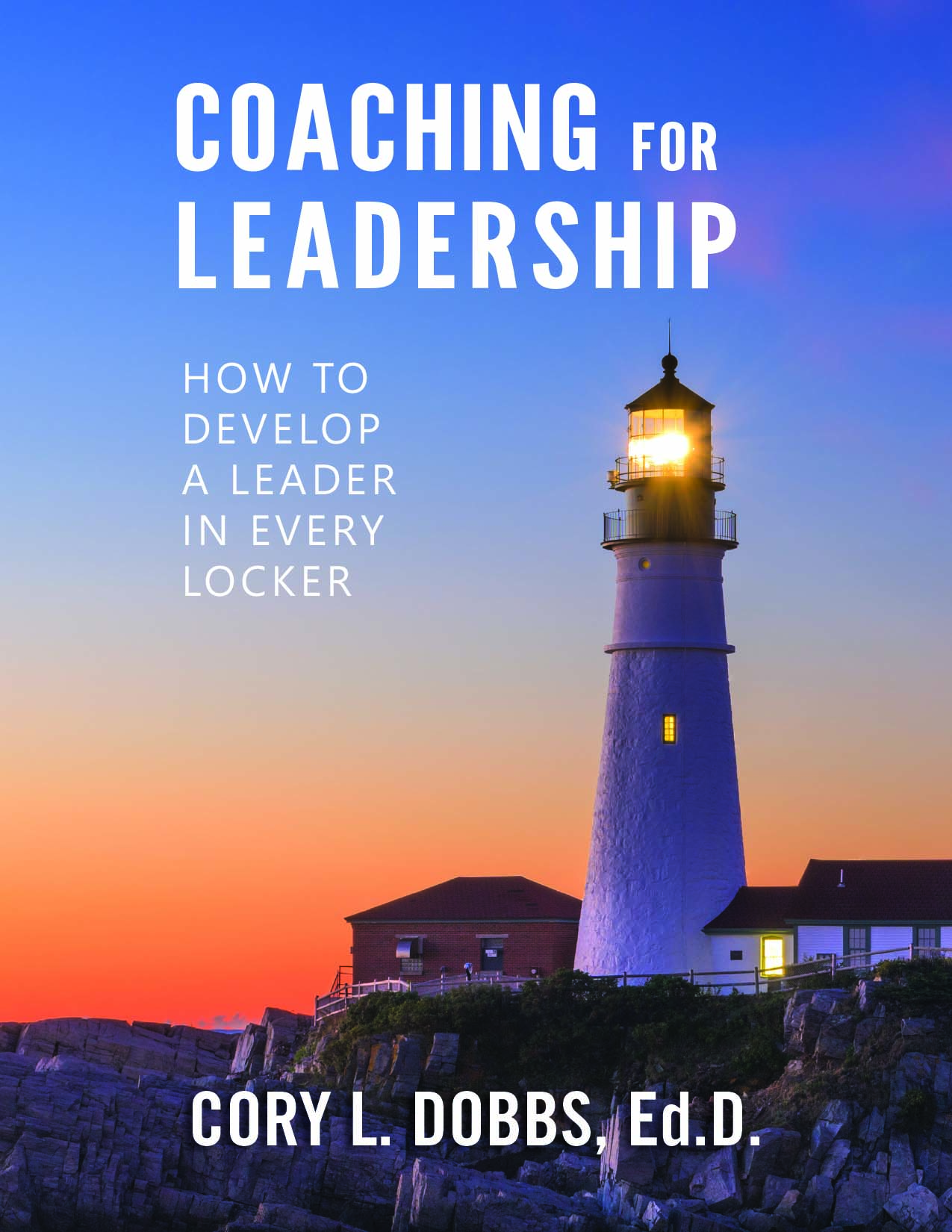Slow Down and Take a Look at How You are Leading.
Dr. Cory Dobbs
The Academy for Sport Leadership
The primary purpose of leadership is to create more leaders, not more followers. Pause for a moment, think deeply about this declarative statement. More leaders.
Now…
How are you doing as a leader? The answer is how are the student-athletes you lead doing? Do they learn? Do they lead? Do they manage conflict? Do they change—grow and improve? Do you really create more leaders? When reflecting on how you are doing as a leader, find out how the student-athletes you lead are doing.
In their best-selling book, _The Leadership Challenge_, authors James Kouzes and Barry Posner set forth a fundamental ingredient of all leadership endeavors—that of modeling the way. The authors contend that “Your value as a leader is determined not only by your guiding beliefs but also by your ability to act on them….To be a leader, you have to Model the Way for others by demonstrating intense commitment to your beliefs with each and every action.”
Team leadership is not an easy role for many young student-athletes. Peer leadership is often an uncomfortable challenge. The desire to be liked has been the downfall of many adult leaders. So don’t gloss over the fact that a student-athlete will often be driven by their need to be liked by teammates. Expect the first hurdle for your emerging team leaders to be overcoming the need to be liked. Young leaders will also have to overcome emotional issues such as the internal conflict that might occur because of their desire for acceptance. As a leader they will at times need to take actions that temporarily separate them from their teammates—the followers. This is but one example of some of the inherent difficulties in peer leadership.
As a coach, you present a compelling model that young athletes will intensely observe. They are constantly seeking cues on how they should lead (wanting to please you) and informing them how to act in a given situation. Team leaders will imitate many of your behaviors and attitudes. They will, for example, watch what you do and then imitate or adapt what you do. The less experienced the team leader the more likely they’ll study you closely to help them figure out “how” you want them to lead. When faced with inconsistencies between what you say and what you do, the young and developing team leader will tend to give greater reliance on what you do.
Your status as a model increases the necessity of having a healthy interpersonal relationship with all your players, but the relationship with team leaders will generally be a little more involved as you assume the role of leadership mentor. Mentors are role models. As a mentor your impact will come from more than just what you tell your team leaders, they will assimilate and emulate many of your behavioral traits and copy many of your values and attitudes.
A healthy relationship and a positive approach to teaching leadership will shape your team leaders. How you model leadership and mentor leaders will go a long way in helping a young and emerging leader understand leaders and leadership.
New to the Second Edition of Coaching for Leadership!
We are pleased to announce a new chapter to the second edition of the best-selling Coaching for Leadership. The chapter, The Big Shift: Unlock Your Team’s Potential by Creating Player-Led Teambuilding, connects the previous edition of this book to its origin, as well as to the future of team sports.
The new chapter sets forth a practical and applicable agenda for change and improvement. The reader is introduced to seven vital elements of change; seven shifts of traditional mental models that lead to the new core principles necessary for creating a player-led team culture. Click here for more information about Coaching for Leadership
About Cory Dobbs, Ed.D.
Cory Dobbs is the founder of The Academy for Sport Leadership and a nationally recognized thought leader in the areas of leadership and team building. Cory is an accomplished researcher of human experience. Cory engages in naturalistic inquiry seeking in-depth understanding of social phenomena within their natural setting.
A college basketball coach, Cory’s coaching background includes experience at the NCAA DII, NJCAA, and high school levels of competition. After a decade of research and development Cory unleashed the groundbreaking Teamwork Intelligence program for student-athletics. Teamwork Intelligence illuminates the process of designing an elite team by using the 20 principles and concepts along with the 8 roles of a team player he’s uncovered while performing research.
Cory has worked with professional athletes, collegiate athletic programs, and high schools teaching leadership and team building as a part of the sports experience and education process. As a consultant and trainer Dr. Dobbs has worked with Fortune 500 organizations such as American Express, Honeywell, and Avnet, as well as medium and small businesses. Dr. Dobbs taught leadership and organizational change at Northern Arizona University, Ohio University, and Grand Canyon University.

